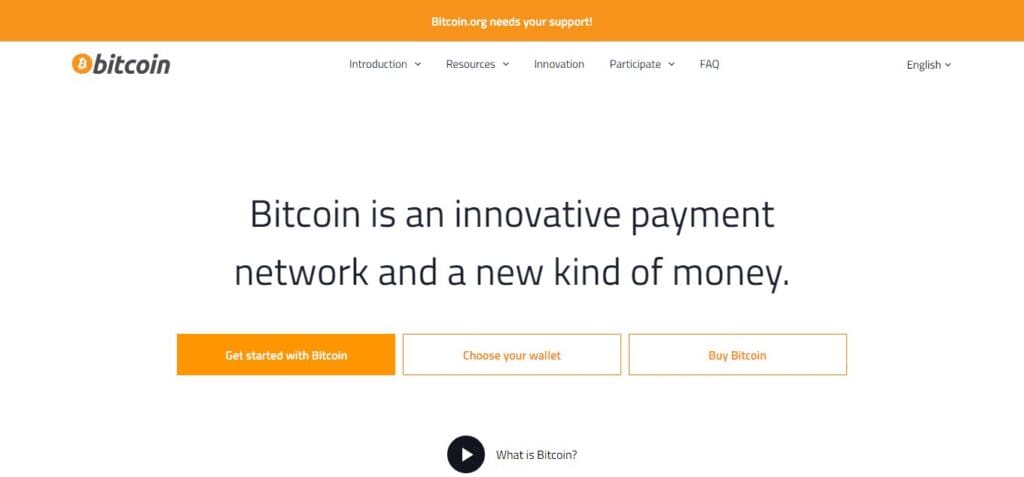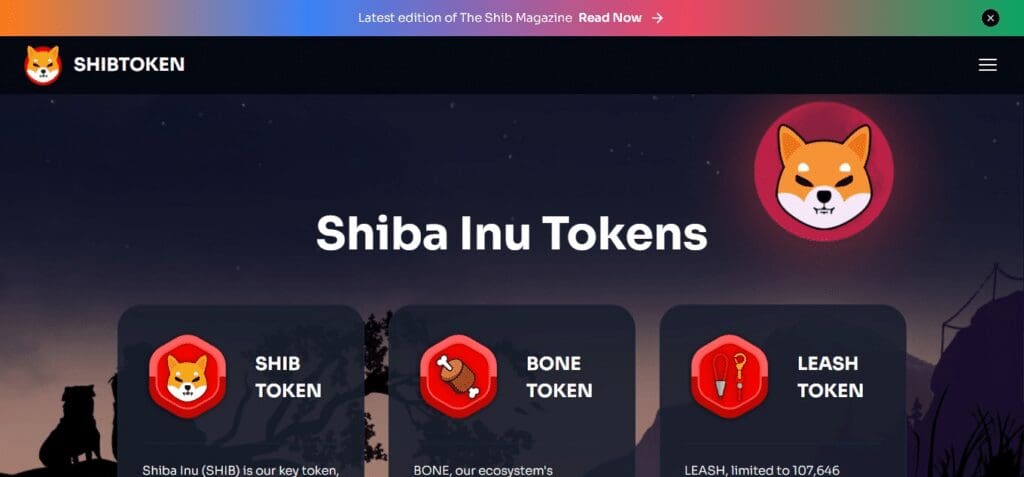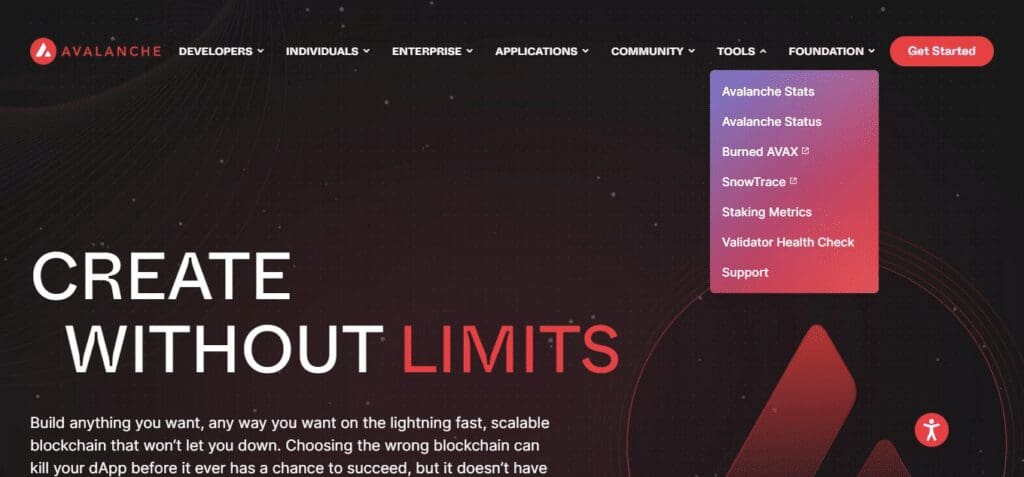This article will examine cryptocurrencies as a means of payment and the most prominent players in enabling modern digital-age transactions. Cryptocurrencies have entirely changed.
The concept of money transfers is to deliver faster, cheaper, and safer choices compared to traditional payment methods.
We’ll look at some of the best crypto options for frictionless and efficient payments in different scenarios, starting with Bitcoin and moving on to Ethereum.
How To Choose the Best Crypto For Payments?
The following points should be considered when choosing the best cryptocurrency for payment:
Transaction Speed and Scalability: Look for cryptocurrencies that have fast transaction completion times and are scalable in processing large numbers of transactions. Cryptocurrencies such as Bitcoin Cash, Litecoin, and Nano are known to facilitate quick transactions.
Transaction Fees: Consider how much each transaction costs. For everyday payments, cryptocurrencies such as Nano or Stellar could be preferred over others like Bitcoin or Ethereum because of their lower transaction charges.
Security: It is essential to choose a secure cryptocurrency with well-built security features and a track record of protecting user funds. Bitcoin and Ethereum are the most secure cryptocurrencies due to their robust blockchain networks and wide use.
Acceptance and Adoption: Select virtual currencies are widely accepted by merchants and supported by payment solutions. Bitcoin and Ethereum have the highest level of acceptance, but other coins, such as Ripple (XRP) or Litecoin, are increasing in popularity.
Usability and User Experience: Consider how usable the cryptocurrency’s wallet or payment infrastructure is. An easy-to-use interface can improve convenience, not least when making payments seamlessly. Dash, for instance, has a user-friendly wallet and an easy payment solution for its users, unlike Ripple.
These points will help you select the best cryptocurrency for your needs when making small purchases or more significant transactions, in which case the above-mentioned factors will be helpful.
Here Is a List Of the Best Crypto For Payments
| Coin | Market Capitalization | Current Price |
| Bitcoin (BTC) | $1.2 trillion | $62,245 |
| Ethereum (ETH) | $360 billion | $3000 |
| Binance Coin (BNB) | $85 billion | $581 |
| Solana (SOL) | $65 billion | $146 |
| Ripple (XRP) | $28 billion | $0.5 |
| Dogecoin (DOGE) | $21 billion | $0.14 |
| Tron (TRX) | $10.6 billion | $0.12 |
| Polkadot (DOT) | $10 billion | $7.01 |
| Cosmos (ATOM) | $3.4 billion | $8.92 |
| Maker (MKR) | $2.5 billion | $2757 |
10 Best Crypto For Payments
1. Bitcoin (BTC)
One of the most frequently used cryptocurrencies in the crypto space for payments is Bitcoin (BTC). Its widespread adoption and status as a pioneer cryptocurrency give it an edge regarding acceptance and liquidity.
Consequently, Bitcoin is considered one of the best options for conducting transactions because of its decentralized architecture and robust security measures.

In addition, its limited supply of 21 million coins makes people believe their value will go up with time, making them keep it as a store of value more than anything else.
Although compared to some new digital currencies, Bitcoin’s transaction charges and confirmations duration may be higher;
These disadvantages are compensated by many merchants and payment processors who accept it widely.
Furthermore, its network infrastructure is strong enough to secure transactions, making them irreversible, thus strengthening its position as the top payment crypto.
2. Ethereum (ETH)
Ethereum is, among other things, a very flexible network and a platform with many helpful payment features.
It also functions as a trusted payment channel despite being primarily recognized as an intelligent contract proponent and supporter of decentralized applications (DApps).

Because of its massive community of developers and users, it has developed into a commercial system that seamlessly allows businesses to accept Ethereum.
The Ethereum Virtual Machine (EVM) is designed to facilitate the creation of customized payment solutions and decentralized finance (DeFi) applications, enabling flexibility and creativity in the payment sector.
Ethereum is popular for everyday transactions because of its lower transaction fees and faster processing times than Bitcoin.
Its reputation as a reliable solution for cryptocurrency payments is based on its strong community support, security features, and constant development.
3. Binance Coin (BNB)
Binance Coin (BNB) has become a viable payment alternative within the cryptocurrency ecosystem. It is a utility token initially launched for the Binance exchange that has transformed into a multi-purpose asset with different payment application cases.
Given BNB’s native integration with the broader Binance ecosystem, this token allows users to access trading, lending, staking, and payment facilities, among other things.
Additionally, BNB’s transaction utility is improved by an extensive network of partners and merchants on Binance. Moreover, transactions in BNB are fast and cheap due to high throughput and low fees at Binance.
Furthermore, developers can create decentralized applications (DApps) and payment systems on the Binance Smart Chain (BSC), broadening BNB’s usability. Binance Coin’s robust infrastructure, growing adoption, and innovative features allow it to remain among the top payment cryptocurrencies.
4. Solana (SOL)
Solana (SOL) is one of the top cryptocurrencies for making transactions due to its high processing speeds and low costs.
Its highest-speed blockchain can process thousands of transactions per second, making it great for instant payments.

Thanks to its swiftness and effectiveness, Solana may be highly recommended for minor operations and international commerce, especially in retail or internet merchandising.
In addition, Solana’s ecosystem supports different decentralized finance (DeFi) applications and payment platforms, which expand its use cases.
Furthermore, increased adoption by merchants and companies makes it more usable as a form of payment. Solana’s scalability, low transaction fees, and solid underlying infrastructure have positioned it as an attractive choice for individuals who seek efficient cryptocurrency payments at low costs.
5. Ripple (XRP)
Ripple (XRP) is widely accepted as one of the best digital currencies for transactions, especially global payments.
RippleNet’s blockchain platform is built to make fast international remittances affordable. XRP transactions settle within seconds, making them one of the quickest cryptocurrency payment options.

Additionally, Ripple has partnered with many banks and financial institutions worldwide, which enhances its mainstream adoption and usability for traditional payment processors.
In providing seamless and efficient cross-border payment infrastructure, Ripple (XRP) remains preferred by many people and businesses who want quick global transactions at low costs.
6. Dogecoin (DOGE)
Dogecoin (DOGE) is a fun and easily accessible cryptocurrency for payment. Initially, it was made as a meme, but Dogecoin became an everyday payment option because of its wide acceptance and low transaction fees.
Fast and affordable Dogecoin transactions make it suitable for daily purchases and microtransactions.

Its community-driven nature and active social media presence have helped it gain traction as a tipping currency, particularly on platforms like Reddit and Twitter. It may not be as widely accepted as Bitcoin or Ethereum,
However, the growing number of merchants and online shops using DogeCoin adds to its usefulness as a payment method.
With its easy-to-use interface and strong community backing, Dogecoin represents a light-hearted yet practical solution for processing crypto payments.
7. Polkadot (DOT)
Polkadot (DOT) is an attractive payment option because of its advanced technology and interoperability.
It is a scalable multi-chain blockchain platform that enables seamless cross-communication and transactions among blockchains, thereby fixing the problem of cross-chain payments.

Its uncommon structure allows quick transactions at potentially high throughput while maintaining cheap transaction fees.
Further, Polkadot’s governance system is designed to secure the network against changing payment requirements.
Although Polkadot is primarily associated with decentralized application building( DApps) and blockchain interoperability, more projects and partners are being added, meaning that Polkadot could emerge as a flexible cryptocurrency payment solution in the future.
8. SHIBA INU (SHIBA)
SHIBA INU (SHIB) has become famous as a speculative asset, although its function as a means of payment is worth mentioning.
Although it may not be as widely adopted as the more established cryptocurrencies, its growing popularity and community support point to its potential use in payments.

SHIB, with meagre fees, is well suited for microtransactions and everyday purchases. Its vibrant community actively promotes using it for tips and encourages entrepreneurs to accept pay with the currency of SHIB.
Furthermore, various payment platforms and decentralized exchanges have recently incorporated Shiba Inu Coin into their systems, increasing their transaction usability.
Despite being early, SHIB’s ease of access, minimal transaction costs, and buoyant user base make it an attractive option for anyone dabbling in alternatives within the crypto payments sphere.
9. Cardano (ADA)
Its sturdy technology, scalability, and commitment to interoperability make Cardano (ADA) one of the leading payment cryptocurrencies.
Through its layered architecture and unique consensus mechanism, Cardano allows users to conduct secure transactions quickly, implying that it is suitable for large-scale and small-scale payments.

Furthermore, some other virtual currencies can be considered environmentally unfriendly, relating to possession of low transaction costs and energy-conservative designs compared with low power consumption.
The network ensures the system is reliable and secure through a formal verification process conducted by qualified developers worldwide.
Further, the rise in decentralized applications (DApps) and partnerships within its ecosystem make Cardano more feasible for transactions.
Nevertheless, through its remarkable features and ardent community backing, Cardano is an attractive proposition for anyone searching for a credible and effective digital currency-based settlement alternative.
10. Avalanche (AVAX)
Because of high transaction throughput, low fees, and fast settlement times, Avalanche (AVAX) is one of the most outstanding payment cryptocurrencies.
Its design considers scalability, which means that its consensus mechanism can facilitate up to thousands of transactions per second, making it ideal for handling huge volumes of payments.

This ensures that transactions are done in sub-seconds, with finality settling them almost instantaneously, providing a smooth payment experience.
Additionally, using Avalanche, users can transact across other blockchain networks, increasing its utility as a payment solution.
In cryptocurrency, Avalanche is a reliable and efficient place to execute transactions owing to its robust infrastructure and growing ecosystem of decentralized applications (DApps) and DeFi protocols.
How Does Cryptocurrency Work?
Blockchain technology is a distributed ledger of transactions that occur through a computer network because it’s decentralized. Here is how this works:
Decentralization: Unlike traditional currencies, cryptocurrencies do not have one central authority, such as banks or governments. Consequently, these digital monies do not have anyone to oversee them.
Blockchain Technology: Cryptocurrency transactions are recorded on the blockchain, a digital ledger that exists in multiple copies spread across multiple computers called nodes.
Transactions are authenticated by some of the network’s many nodes and subsequently added to blocks. After being validated, each block becomes associated with its predecessors, giving rise to chains of blocks, also referred to as blockchain.
Cryptographic Security: The underlying cryptographic techniques are used to secure transactions made using cryptocurrencies and regulate their creation activities. Each user has an individualized cryptographic set.
Keys – a public key that constitutes much of an address where cryptocurrencies can be sent, and another private key that functions like passwords and offers authorized access over their funds.
Transaction Verification: When a user makes transaction orders, they transmit them out for broadcast among all the nodes in the network. Miners, special types of nodes within this network, compete against each other by solving complex mathematical problems whose solutions validate the transactions while adding them into blocks. This process is commonly referred to as mining.
Consensus Mechanisms: Cryptocurrency networks employ numerous consensus mechanisms, but they aim to attain agreement between nodes regarding proper transaction confirmation.
Proof-of-work (PoW) stands out as the most popular one, whereby miners race with each other towards solving puzzles meant for verifying such deals to decide whether they should be added or not; others include Proof-of-Stake (PoS), Delegated Proof-of-Stake (DPoS) and Proof-of-Authority (PoA).
Immutable Records: Once recorded on a blockchain, no further changes can be made, meaning that the record stays intact. This maintains the integrity of transaction history and deters fraud.
Wallets: Cryptocurrency wallets serve as digital receptacles for keeping or transferring various digital currencies. Some are software-programmed, some are hardware-based, and others are simply printed papers, but all securely store individuals’ public-private keys.
In general, cryptocurrencies enable value to be directly transferred between peers securely without intermediaries like banks or payment processors.
Benefits of Crypto Payment Gateway
Crypto payment gateways are advantageous to both businesses and consumers.
Worldwide Reach: Using crypto payment gateways allows a business to accept customer payments from anywhere on the globe without being limited to traditional banking systems. This means that new markets can be opened up and customers expanded.
Small Charges: Cryptocurrency transactions are usually less than conventional mechanisms such as credit cards or bank remittances. Traditional processors for payment methods often have lower rates than the crypto payment gateways.
Ever Faster Payments: Cryptocurrency settlements happen much faster than the average days banks take for international transfers. Businesses can process their cryptocurrency transactions in minutes, giving them more access to money within short durations.
Reduction in Fraud Risk: Transactions made through cryptocurrency are safe and cannot be reversed, reducing merchants’ risk of chargebacks and fraud. As such, expensive fraud prevention measures become unnecessary.
Accessing Unbanked Populations: Crypto payment gateways extend financial participation to people without limited access to banking services worldwide. In specific regions where traditional banking services are not well developed, digital currencies can be used for online purposes.
Privacy and Security: Cryptocurrency transactions are characterized by high-level security and privacy. They can be carried out without revealing sensitive personal information, which would enable identity theft or the perpetration of other types of fraud by third parties.
Advancement in features: The majority of crypto payment gateway platforms also offer advanced attributes, including real-time currency conversion, subscription billing, and customizable payment options, which improve convenience and flexibility for companies
Cross-Border Payments: Cryptocurrencies cross national boundaries, therefore making it more accessible as well as cheaper for firms to accept payments made by customers from countries different from their own, removing the need for currency conversions as well as associated charges
Blockchain Advantages: Blockchain technology’s benefit when utilized in cryptocurrency processing is its transparent transaction records, which cannot be changed.
Generally, crypto payment gateways offer businesses affordable ways of accepting payments and provide individuals with more financial liberty and security.
Conclusion
Ultimately, the best cryptocurrency for payments relies on transaction speed, scalability, security, acceptability, and usability. Bitcoin remains a popular choice due to its widespread adoption and security, which allow it to transact with larger amounts of money and store value.
Ethereum is notable for its innovative contract capabilities and support for decentralized applications, making it quite versatile in payment and other utilization areas.
On the other hand, new cryptos including Binance Coin (BNB), Ripple (XRP), and Solana (SOL) have innovative qualities such as low transaction costs, rapid settlement periods, and scalability that make them appealing for everyday transactions.
Finally, selecting the best cryptocurrency for payments will depend on personal needs; however, with blockchain technology becoming widely adopted and the industry maturing, we are witnessing an ever-evolving scene around crypto payments, offering more alternatives and possibilities for both users and companies.
FAQ
What is the best cryptocurrency for payments?
The best cryptocurrency for payments depends on various factors, such as transaction speed, fees, security, and acceptance. Some popular choices include Bitcoin (BTC) for its widespread adoption and security, Ethereum (ETH) for its smart contract functionality, and newer options like Binance Coin (BNB) and Solana (SOL) for their fast transaction speeds and low fees.
Why is Bitcoin considered a promising cryptocurrency for payments?
Bitcoin is a promising payment cryptocurrency due to its widespread acceptance, security, and decentralized nature. Its large network of users and merchants makes it easy to use for transactions. However, its transaction fees and confirmation times can be higher than those of other cryptocurrencies.
What makes Ethereum suitable for payments?
Ethereum is suitable for payments because of its smart contract functionality, which allows for the creation of decentralized applications (DApps) and payment solutions. It offers relatively faster transaction times and lower fees than Bitcoin, making it a practical choice for everyday transactions.
How do newer cryptocurrencies like Binance Coin and Solana compare for payments?
Binance Coin (BNB) and Solana (SOL) are newer cryptocurrencies that offer fast transaction speeds and low fees, making them attractive payment options. BNB benefits from integrating into the Binance ecosystem, while SOL’s high-throughput blockchain allows for rapid and cost-effective transactions.
Are there cryptocurrencies designed explicitly for cross-border payments?
Yes, cryptocurrencies like Ripple (XRP) are designed for cross-border payments. Ripple’s blockchain network, RippleNet, facilitates fast and inexpensive international transactions, making it a popular choice for remittances and global payments.










